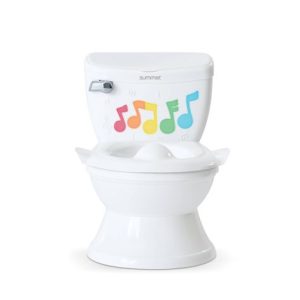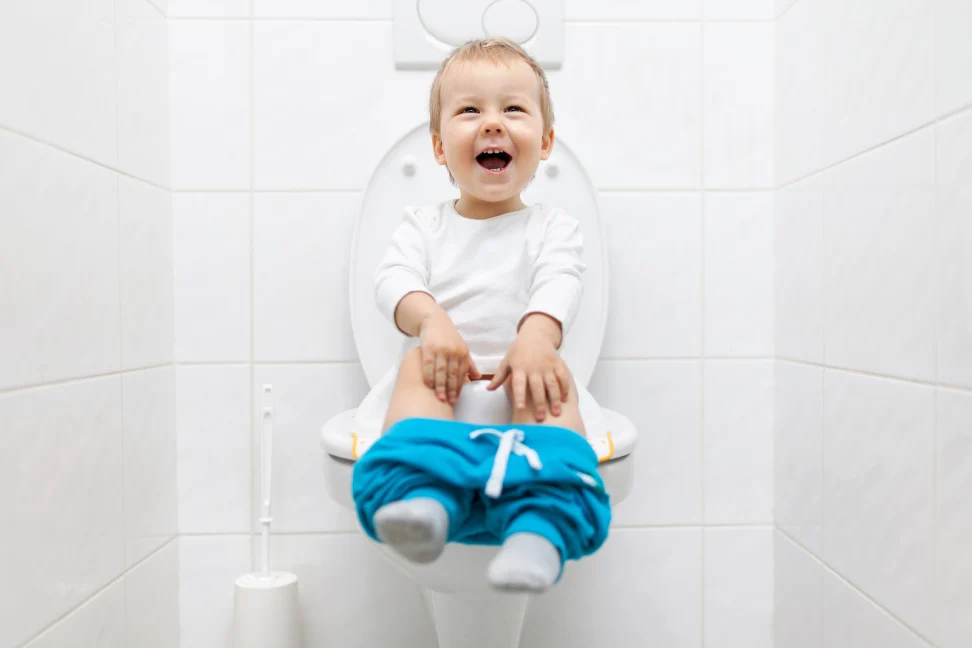Night potty training can feel like a daunting task for parents and toddlers alike. After all, daytime potty training is a big accomplishment, and nighttime presents a whole new set of challenges. However, with patience, consistency, and the right approach, your toddler can successfully conquer nighttime potty training too!
This article explores night potty training tips, what to expect, and how to troubleshoot common challenges.
Understanding Nighttime Potty Training
Nighttime potty training is a gradual process. Here are some key points to remember:
Developmental Readiness:
Most toddlers aren’t physically ready for nighttime dryness until around 3-4 years old. Their bladders simply aren’t mature enough to hold urine through the night.
Relaxed Approach:
Nighttime potty training should be a relaxed and positive experience. Avoid pressure or punishment, as this can backfire and create anxiety.
Consistency is Key:
Just like with daytime potty training, consistency is crucial for nighttime success. Establish a bedtime routine and stick to it as much as possible.

Getting Ready for Nighttime Potty Training
Here are some steps to prepare for nighttime potty training:
-
Daytime Success: Nighttime dryness often follows daytime success. Make sure your toddler is consistently using the potty during the day before starting nighttime training.
-
Limit Fluids Before Bed: While staying hydrated is important, try to limit excessive fluids in the hour or two leading up to bedtime.
-
Pick a Potty: Let your toddler choose a potty chair or training pants they feel comfortable using at night.
-
Nighttime Routine: Establish a consistent bedtime routine that includes using the potty before bed, even if they don’t go. Reading a story, singing a song, and saying goodnight can create a calming bedtime association.
-
Waterproof Bedding: Accidents are inevitable during nighttime training. Invest in waterproof mattress pads and washable sheets to protect your mattress.

Nighttime Potty Training Tips
Here are some tips to guide you through the nighttime potty training process:
Positive Reinforcement:
Praise your toddler for using the potty at night, even if it’s just trying. Sticker charts or small rewards can be motivating tools.
Nighttime Potty Breaks:
Consider offering optional potty breaks halfway through the night, especially if your toddler wakes up. This can help prevent accidents in the later hours.
Pull-Ups vs. Underwear:
Some parents prefer pull-ups for nighttime to contain accidents. Others opt for underwear to promote the feeling of wetness and encourage potty use. Choose what works best for your toddler.
Be Patient:
Accidents will happen. Stay calm, clean up without making a fuss, and put your toddler back to bed in a positive way.
Communicate with Your Toddler:
Talk to your toddler about using the potty at night in simple terms. Let them know you’re there to help them succeed.
Remember, every toddler is unique. The pace of nighttime potty training will vary from child to child. Be patient, celebrate their successes, and offer support through setbacks.

Troubleshooting Nighttime Potty Training Challenges
Here are some common nighttime potty training challenges and tips for addressing them:
-
Frequent Accidents: If accidents are happening frequently, it might be a sign your toddler isn’t developmentally ready yet. Consider revisiting daytime training and waiting a while before trying nighttime again.
-
Bedwetting: Bedwetting is common, especially for younger toddlers. Avoid punishment or shaming. Talk to your doctor if bedwetting is persistent or excessive.
-
Power Struggles: Nighttime potty training can become a power struggle if your toddler resists. Take a break, focus on positive reinforcement, and revisit the process when they seem more receptive.
-
Stressful Events: Stressful events like a new sibling, moving, or changes in routine can cause regressions in potty training. Offer extra reassurance and support during these times.
Remember, consistency and patience are key. With the right approach, your toddler will eventually conquer nighttime potty training and sleep through the night dry.

Celebrating Success and Moving Forward
Nighttime potty training is a journey with milestones to celebrate! Here are some ways to acknowledge your toddler’s progress:
-
Verbal Praise: Simple but effective! Regularly praise your toddler for using the potty at night, even if it’s just trying.
-
Sticker Charts: Many toddlers love sticker charts. Create a chart specifically for nighttime potty attempts and celebrate with a small reward when the chart is full.
-
Special Treats: Small treats like choosing a bedtime story or getting an extra hug can be a fun way to acknowledge success.
Rewards are most effective when they are positive and age-appropriate. Avoid using candy or treats as bribes, as this can backfire in the long run.
As your toddler progresses in their nighttime potty training journey, you can gradually:
-
Reduce Nighttime Potty Breaks: If your toddler is consistently staying dry through the night, you can slowly space out or eliminate nighttime potty breaks.
-
Transition to Underwear: Once your toddler is consistently dry at night, you can transition from pull-ups to underwear. This can help them feel the sensation of wetness and further encourage nighttime potty use.
Remember, accidents are still possible during this transition. Be patient, offer reassurance, and help your toddler change into dry clothes.
Nighttime Potty Training: A Recap
Nighttime potty training can be a journey with ups and downs. Here are some key takeaways:
-
Every Toddler is Unique: Some toddlers grasp nighttime potty training quickly, while others take longer. Be patient and celebrate their individual progress.
-
Consistency is Key: Establish a consistent bedtime routine that includes using the potty before bed, even if they don’t go. This helps your toddler develop predictable nighttime habits.
-
Positive Reinforcement: Nighttime potty training is most successful with positive reinforcement. Praise your toddler’s efforts and avoid punishment for accidents.
-
Open Communication: Talk openly and honestly with your toddler about using the potty at night. Answer their questions in simple terms and let them know you’re there to support them.
With patience, consistency, and the right approach, your toddler will eventually conquer nighttime potty training and sleep soundly through the night.
Building Communication and Trust
Nighttime potty training is a learning process for both you and your toddler. Here are some ways to build communication and trust:
-
Open Communication: Talk openly and honestly with your toddler about using the potty at night. Answer their questions in simple terms and let them know you’re there to support them.
-
Positive Reinforcement: Nighttime potty training is most successful with positive reinforcement. Celebrate your toddler’s efforts, no matter how small. Praise their willingness to try and avoid punishment for accidents.
-
Respect Bodily Autonomy: It’s important to respect your toddler’s bodily autonomy during potty training. Avoid forced sitting or making them use the potty against their will.
-
Focus on Progress, Not Perfection: Accidents are inevitable during nighttime potty training. Focus on your toddler’s progress, not setbacks. Celebrate their dry nights and offer reassurance after accidents.
By working together and building trust, you can create a positive potty training experience for your toddler.





